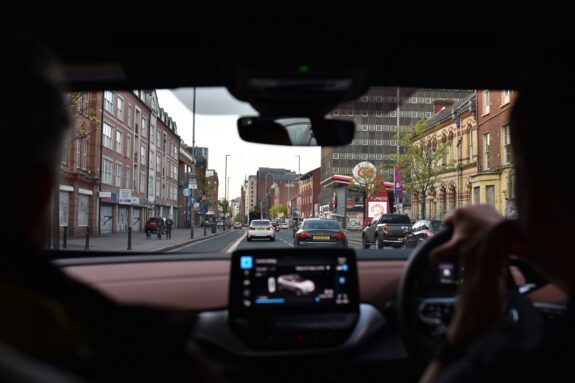
Getting Cheaper Car Insurance As A Young Driver
Car insurance is an essential cost for any driver, but for young drivers in the UK, premiums can often be significantly higher due to perceived…

Car insurance is an essential cost for any driver, but for young drivers in the UK, premiums can often be significantly higher due to perceived risk. However, there are many practical steps young drivers can take to reduce the cost of their car insurance.
Car insurance companies calculate premiums based on risk, and statistically, young and inexperienced drivers are more likely to be involved in accidents. This means higher premiums for drivers under 25, particularly those who have recently passed their test. By understanding these factors, young drivers can take specific steps to address these concerns and demonstrate to insurers that they are lower-risk customers.
The car you drive has a significant impact on your insurance costs. Cars are grouped into insurance categories from 1 to 50, with Group 1 being the cheapest to insure. For young drivers, selecting a car from a lower insurance group can drastically reduce premiums. Small, economical cars such as a Ford Fiesta or Vauxhall Corsa often fall into these groups. Avoid modifications like spoilers or engine tuning, as these can increase premiums. Additionally, consider the car’s safety features. Vehicles equipped with advanced safety technology, such as automatic emergency braking or anti-theft systems, can be cheaper to insure because they reduce the likelihood of accidents or theft.
Adding an experienced driver, such as a parent or older sibling, to your policy can help lower premiums. Insurers view policies with multiple experienced drivers as less risky. However, it is crucial that the main driver on the policy is the person who will be using the car most often, as misrepresenting this (known as “fronting”) is illegal and can invalidate your insurance.
Telematics, or black box, insurance policies are popular with young drivers. These policies involve installing a device in your car that monitors driving habits, including speed, braking, and time of travel. If you drive responsibly, insurers may reward you with lower premiums. Many telematics policies also provide feedback, helping new drivers improve their skills and avoid risky behaviour.
The excess is the amount you agree to pay towards a claim before your insurer covers the rest. Increasing your voluntary excess can reduce your premium, as it shows insurers you are willing to share the financial risk. However, ensure that the total excess (voluntary and compulsory) is affordable if you ever need to make a claim.
A no claims discount (NCD) rewards drivers who do not make claims over a certain period. For young drivers, building up an NCD can lead to substantial savings over time. Consider paying for minor repairs yourself instead of claiming on your insurance, as this can protect your NCD. Some insurers also offer “no claims protection” for an additional fee, allowing you to maintain your discount even after a claim.
Shopping around is one of the easiest ways to save money on car insurance. Use comparison websites to review quotes from multiple insurers, but also check directly with providers that may not appear on these sites, such as Direct Line. While price is important, ensure you’re comparing policies with similar levels of coverage and features. Timing can also influence the cost of your insurance. Research shows that renewing your policy 21 to 30 days before it expires often results in lower premiums compared to renewing at the last minute.
If you don’t drive often, a pay-as-you-go policy might be a cost-effective option. These policies charge based on the number of miles driven, making them ideal for young drivers who only use their car occasionally. However, ensure you accurately estimate your mileage to avoid unexpected charges.
Pass Plus is an advanced driving course aimed at new drivers. It covers scenarios not typically included in standard driving tests, such as motorway and night driving. Completing this course demonstrates additional competence and can make you eligible for discounts with certain insurers. While the course costs money, the potential savings on insurance may offset this expense.
Always provide accurate information when applying for insurance. This includes stating your correct address, occupation, and estimated annual mileage. Inaccurate details can lead to higher premiums or invalidate your policy. For example, if you live at home during the school term but are away at university, specify your term-time address if that’s where the car is kept most often.
Where you park your car can affect your premium. If possible, keep your car in a garage or driveway rather than on the street. Parking in a secure location reduces the risk of theft or damage, leading to lower insurance costs. Some insurers may even ask for additional details about parking arrangements during the application process.
Paying your insurance premium annually rather than monthly can save money. Monthly payments often include interest or administrative fees, making the total cost higher. If you can afford the upfront payment, it’s usually the more cost-effective option. Insurance policies often come with optional extras such as breakdown cover, legal protection, or personal accident cover. While these can be useful, they may not always be necessary and can increase your premium. Assess whether these add-ons are worth the additional cost or if you can find them cheaper elsewhere.
As you gain experience and build an NCD, your insurance needs may change. Regularly review your policy to ensure it still meets your requirements and provides good value for money. Even mid-policy, some insurers allow adjustments that could reduce your premium, such as reducing annual mileage.
By taking these steps, young drivers can manage their car insurance costs more effectively. While premiums may still be higher initially, demonstrating responsible driving behaviour and making informed choices will lead to significant savings over time.
More Articles

Car insurance is an essential cost for any driver, but for young drivers in the UK, premiums can often be significantly higher due to perceived…

When purchasing or renewing car insurance in the UK, it’s crucial to understand the relationship between your medical history and your policy. Declaring medical conditions…

When choosing a car insurance policy in the UK, understanding excess—and specifically voluntary excess—can help you make smarter decisions and potentially save money. Excess is…
About This Page
Our articles, guides & reviews are provided as generic information only. Any expressed view, product or service mentioned within these does not constitute as financial advice or recommendation by us.
Be mindful that information may have changed since publication
Compare Personalised Insurance Quotes In Minutes
Compare Now